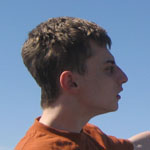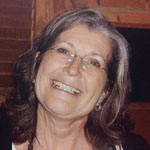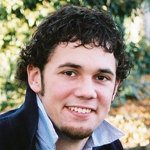Ken Price was diagnosed with Cystic Fibrosis (CF) when he was just 12 months old. His parents were informed that it was unlikely their son would live past age 10. At that time, children diagnosed with CF were often isolated for fear of contracting lung infections. Ken’s parents took a different route. In his words, “I was a curious, energetic, active child, and my parents strongly encouraged me in every element and activity I was interested in.” Because his lung complications did not materialize when he was young, he not only lived past 10, but excelled in both academics and athletics. However, after contracting double pneumonia as a teenager his health began to steadily decline. He suffered from repeated infections, a loss of lung function, coughing up blood, and a decrease in energy. Refusing to be treated differently, or succumb to his condition, Ken continued to play sports and hid his illness from his peers. Doctors then projected he might live into his late twenties. Maybe. Undeterred by his prognosis, Ken began applying to college to study aerospace engineering-a second best to flying fighter planes for the military, his dream career. He was accepted into Cornell University for his undergraduate studies and continued on to Stanford to pursue his Masters in Aeronautics and Astronautics. This path eventually landed him in Seattle, WA working as an aerodynamicist for Boeing. Though his professional life and career were flourishing, managing his deteriorating health was becoming more and more of a challenge. Because so few CF patients lived into adulthood, Ken was initially treated at Seattle Children’s Hospital. Eventually, the University of Washington Medical Center (UWMC) opened an adult CF clinic, where Ken met Dr. Moira Aitken, the doctor who would fight for his life.
Though UWMC was not doing lung transplants at the time, Dr. Aitken submitted his case to multiple lung transplant centers around the country. He was continuously denied, flagged as a high risk candidate. Ken had nearly lost all hope when UWMC open their lung transplant program. They were not considering CF patients at the time, but Dr. Aitken arranged for Ken to meet with members of the transplant committee separately and, essentially, interview for his life. He knew he would make the most of this gift and give back in return, he just had to demonstrate this drive and determination to the surgeons. On January 11, 1993 he received a call from Dr. Aitken with the exact words, “There were a lot of things the committee didn’t like about your case…but we have agreed to list you.” A fix to the health problems Ken had experienced most of his life was finally within reach. On July 7, 1993 he received the call; they had found a match. The next day Ken woke up with a new set of lungs, and a new lease on life.
Just four weeks post-transplant, Ken was out on the tennis court training for a tournament-an A-level tournament that he won only five months after his transplant. Less than one year after receiving his new lungs, Ken rode the Seattle to Portland Bicycle Classic, a 200-mile bike ride between the two Pacific Northwest cities. He has participated in the race an additional eight times since his inaugural ride, finishing three of those rides in one day along with the elite riders. Ken returned to work designing airplanes and running flight tests at Boeing, and he went on to get his pilot’s license for personal adventures. Continuing his educational pursuits, Ken received his MBA from the University of Washington and graduated as valedictorian. He completed his first full marathon on January 11, 2011-exactly 16 years to the day he was notified he would be listed for a double lung transplant.
Today, Ken is the Director of Aircraft Valuation for Boeing Capital Corporation and travels the world managing the Boeing relationship with the worldwide appraiser community. Because of his transplant, Ken learned to really live and fully enjoy life. In addition to the multitude of career and athletic accomplishments, he also started a successful side business and spent a few years residing in Brazil where he grew his hair out, learned Portuguese, and immersed himself into local culture. His transplant has truly allowed him to live life to the fullest in EVERY regard.





